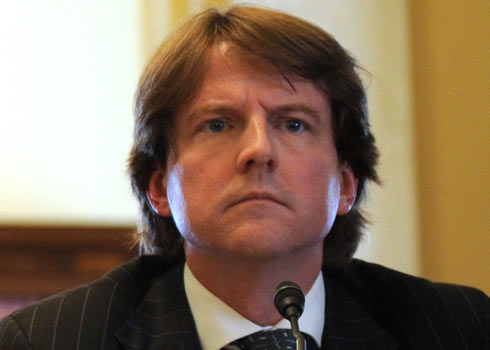A coalition of watchdog groups are calling for congressional hearings into what they regard as systematic failings of the Federal Election Commission, the agency charged with enforcing campaign finance law.
In a letter to the top Republicans and Democrats on the House and Senate oversight committees, the coalition urges the panels to hold hearings on the FEC’s “frequent refusal to enforce the campaign finance laws passed by Congress.”
The organizations signing the letter include Americans for Campaign Reform, Campaign Legal Center, Citizens for Responsibility and Ethics in Washington (CREW), Common Cause, Democracy 21, League of Women Voters, Public Campaign, Public Citizen and U.S. Public Interest Research Group (USPIRG).
“The FEC is, without question, one of the most dysfunctional agencies in the federal government,” the groups wrote. “The broad powers of each of the oversight committees make them well-suited to identify and bring real attention to the reasons why the FEC has ceased to comply with its statutory mandates.”
“It is unacceptable that the only agency charged with enforcing campaign financing rules on our nation’s highest elected official is largely AWOL,” the groups added.
Examples of the FEC’s ineffectiveness are legion, the groups argue. One of the biggest reasons for the agency’s disinterest in enforcing the law likely stems from the way it was created — and its evenly divided leadership — made up of three Republican and three Democratic commissioners — each side appointed by its party leaders. Its rules require the votes of four commissioners to get anything done so deadlocks are common.
“Time and again, the FEC has either dismissed complaints because the Republican and Democratic Commissioners have rejected efforts by the professional staff to enforce the law, deadlocked in a three-to-three vote, or promulgated rules contrary to the law, resulting in orders from the court to rewrite those rules,” the groups wrote.
For instance, in January the press was full of stories on the one-year anniversary of the Supreme Court’s decision in Citizens United case, which opened the spigot on the use of unlimited corporate and union cash in federal elections.
The FEC marked the anniversary with a 3-3 partisan deadlock over proposed rules to revamp campaign finance laws in light of the Citizens United opinion.
“Unfortunately, this was business as usual at the FEC: For the past several years the three Republican FEC commissioners have blocked enforcement of much of what remains of federal campaign finance law,” wrote Richard Hasen, a professor at Loyola Law School who writes a widely read campaign finance law blog. “As we enter the 2012 election season, the FEC is as good as dead, and the already troubling campaign finance world of secret unlimited donations is bound to get worse.”
A spokesman for Rep. Darrell Issa (R-CA), who chairs the House Oversight and Government Reform Committee, did not have an immediate response but said he would look into the issue. Senate Homeland Security and Government Affairs Committee Chairman Joe Lieberman’s (I-CT) office did not immediately respond to a request for comment.
Advocates of greater restrictions on campaign-finance law have long referred to the FEC as a toothless paper tiger, set up to look like an enforcement agency when it fact it does very little enforcing. In recent years, however the agency’s record has grown far more troubling.
In 2005 President George W. Bush nominated Hans Von Spakovsky to serve as an FEC commissioner. Von Spakovsky had a checkered tenure when he worked at the Bush Department of Justice. As a political appointee, he was involved in overruling career attorneys on whether the department should approve Georgia’s controversial voter-identification law and the Texas redistricting plan led by former House Majority Leader Tom DeLay (R-TX).
Then-Sen. Barack Obama (D-IL) placed a hold on von Spakovsky’s nomination after civil rights and advocates of tougher campaign-finance laws protested.
The fight over von Spakovsky resulted in a showdown in the Senate that resulted in a hold on a number of nominations to the FEC. Eventually only two of the FEC’s six commissioners remained and the agency lacked the basic quorum of four and was unable to perform even the simplest of functions. In 2008, von Spakovsky got tired of waiting for the Senate to confirm his nomination and withdrew.
Bush and the Senate quickly filled out the FEC’s empty seats and one commissioner, Don McGahn, a Republican election lawyer who has worked for the GOP party committees, has given watchdog groups serious headaches.
Hasen calls McGahn “a smart, under-the-radar ringleader of the Republican commissioners” and argues that he is leading a wholesale dismantling of the nation’s campaign finance laws.
“The Republican commissioners have eviscerated campaign finance law simply by resisting the enforcement of such laws,” Hasen said
For instance, over the summer, the three GOP commissioners blocked an investigation
into whether the conservative group Freedom’s Watch violated disclosure provisions by failing to identify its donors.
Earlier this month, the three Republican commissioners blocked a probe into whether a Louisiana company, U.S. Dry Cleaning Corp., gave more than $38,000 in illegal campaign contributions to Sen. David Vitter, (R-LA), by laundering the money through several company executives and their spouses.









